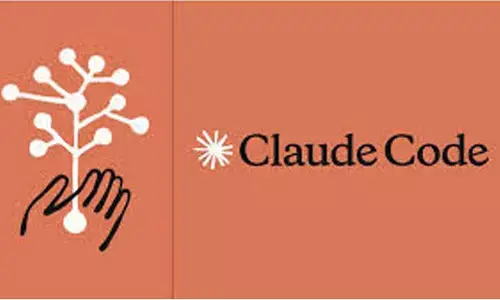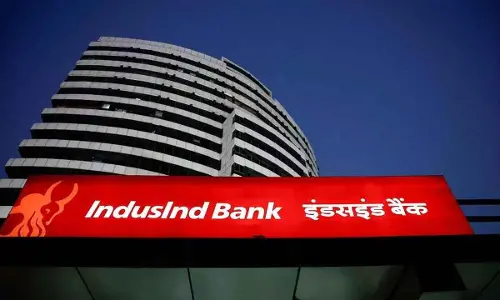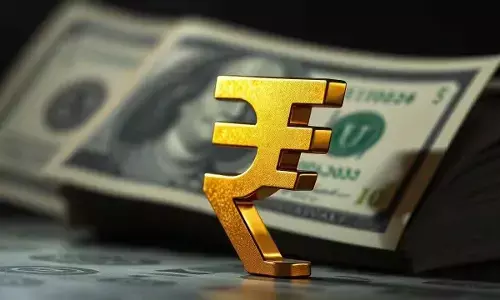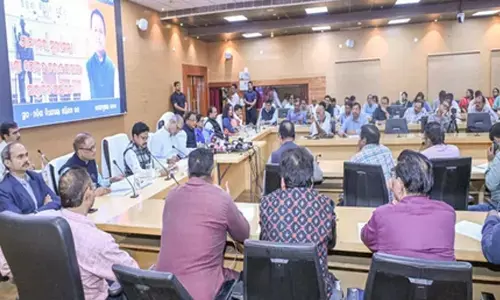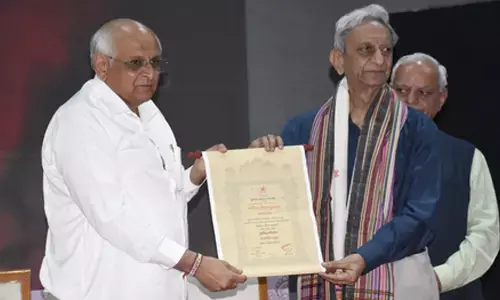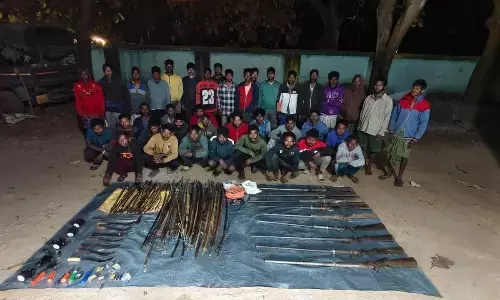Deals are in work!

General Elections 2014: Deals Are In Work. Electoral pact is a strategy aimed at achieving certain goals. Most of the times it is intended to facilitate win for the partners. In some cases, it could be to ensure defeat of a common rival.
Electoral pact is a strategy aimed at achieving certain goals. Most of the times it is intended to facilitate win for the partners. In some cases, it could be to ensure defeat of a common rival. Bharatiya Janata Party (BJP) and the Congress party depend mainly on their strength to mobilise partners to form government. There is no emphasis on pre-poll alliance except in a few cases. The BJP might have electoral alliance with Shiromani Akali Dal, Shiv Sena and TDP besides small groups in Tamil Nadu and Bihar. The Congress may have the company of Nationalist Congress Party (NCP) and Rashtriya Lok Dal (RLD) of Ajit Singh. But no alliance with a declared motive of stalling the BJP’s Prime Ministerial candidate Narendra Modi in his tracks was put in place. No serious attempt was made to mount one such national alliance comprising non-Congress and non-BJP parties. But the alliances so far entered into by the two national parties do not sound opportunistic or unethical.
The electoral circus that has been going on for weeks in Andhra Pradesh smacks of irrationality and immorality. It is so with the individual politicians as well as political parties. Winnability is the sole criterion in deciding to shift loyalties. Political leaders who enjoyed ministerial berths for ten years at the Centre or in the State did not hesitate for a minute before dumping their party to jump into a party against which they waged furious battles until recently. Those who bitterly opposed the Telangana activists did not have qualms in getting admitted into Telangana Rashtra Samiti (TRS). Konda Surekha and her husband Murali were with YSRCP for some time. Then they shifted to the Congress, their parent party. But the electoral arithmetic compelled them to join the TRS which she was strongly opposed to. Peddapalli MP, G Vivek, who left the Congress to join the TRS, went back to the Congress. All this in less than one year. The MP was miffed at his brother being denied the seat of his choice, never mind if it had a sitting TRS MLA. Another MP who left the Congress for the TRS along with Vivek opted to stay back reportedly on the promise of a ticket for his son, besides one for himself. The Congress high command is understood to have come up with a principle of one ticket for one family. Brothers may not constitute one family, but father and son do. A leader in north Coastal Andhra (Ganta Srinivasa Rao) who left the TDP to join PRP of Chiranjeevi and became a minister after his party merged into the Congress has just got honoured by Chandrababu Naidu with yellow shawl. Full circle in five years. There are others who are not known to be rabid opportunists but had to switch sides since the Congress is in the limbo. Mandali Buddha Prasad had joined the TDP leaving the Congress party that made him and his father ministers. He lost out one term. He cannot afford to jeopardise his career by sticking to a party which had lost its vote bank, at least for now.
The calculations that encourage defections may not always work the way the defectors visualised. One plus one may not be two in politics. It is particularly so with electoral pacts. There are always two diametrically opposing arguments on any question. There was a popular demand in Telangana that the Congress, the TRS and the TJAC should fight the elections together and take part in the government since all the three parties were responsible for realisation of the dream of statehood for Telangana. Had the demand been accepted by the three parties, it would have been advantageous to the TDP-BJP combine since the votes would get polarised. Those who have reservations about the TRS and the Congress would have generally voted for the TDP-BJP alliance. Otherwise, those who don’t have great opinion of the TRS would have voted for the Congress and vice versa. For a number of reasons, the Congress and the TRS could not get together, not yet at least, and the TJAC leaders were left free to choose their options. The prospect of the Congress and the TRS entering the fray as rivals would not help the TDP-BJP alliance. In districts where the Telangana sentiment is strong either of the two parties would bag the seats. In districts where the TRS is not a force, the Congress has enough strength to give tough fight to the TDP-BJP combine. If there was an alliance between the Congress and the TRS, they would have won a simple majority straight away. Without a pact, they may have to form a coalition government. In either case, the TDP-BJP combine would be sitting in opposition. But the alliance would have got more seats for the combine had there been a pact between the Congress and the TRS. Both in 2004 and 2009, most of the seats allocated to the TRS were bagged by rivals, the TDP and the Congress respectively. Same scenario would have repeated itself since vote transfer does not automatically takes place and the Congress is prone to encourage independent candidates undermining the chances of the partner. In the same manner, the alliance between the TDP and the BJP might help the Congress and the TRS in the final count if the votes would not get transferred.
There is a strong reason behind the dogged resistance put up by Kishen Reddy, chief of Telangana BJP, to an alliance with the TDP. Modi is interested in his prospects of becoming PM. Kishen Reddy is also genuinely interested in his future and that of his party. He has the full backing of the RSS leaders in this aspect. If the BJP can field candidates in all the 119 constituencies in Telangana, the party may not be able to win many seats in this election. But the candidates would form a basis for building up the party which would hopefully be in a better position to grab power in 2019. The other option before Kishen Reddy was to have a tie-up with the TRS which is stronger than the TDP in Telangana. Both the parties would jell well as partners who were responsible for clinching the statehood issue. Moreover, BJP leaders in Telangana besides winning a good number of seats can hope to be partners in government. The coalition government formed by the BJP and the TRS would have given a foothold for the saffron party in Telangana for future campaigns. Modi’s ambition of getting rid of the Congress (Congress Mukt Bharat) would have been realised in Telangana notwithstanding the result at the national level.
Kishen Reddy had to sacrifice his political interests for the sake of Modi’s. In the first place, Chandrababu Naidu would not countenance a pact with the BJP that is limited to Seemandhra. It has to be for both the regions. Modi and Arun Jaitley would have no patience for Kishen Reddy’s argument since they are eager to seal the deal and get on with the campaign. Conceding an extra seat hear or there does not matter to Modi. Any seat won by the BJP or the TDP is going to be in NDA kitty. The rationale could have been the winnability. Leaders of both the parties should have undertaken SWOT analysis to recognise the strengths, weaknesses, opportunities and threats in each and every constituency and decide to field the best available candidates. But the political parties in the country do not have unity of purpose.
This impression is fortified by the way the CPI is insisting on two Lok Sabha seats in Telangana for an alliance with the Congress. The party is not in a position to win a single Lok Sabha seat. Allotting one or two seats to CPI means gifting those seats to either TDP-BJP combine or the YSRCP. The Congress, CPI and the CPM have common, though undeclared, agenda of stalling Modi. To prevent one MP seat from going to NDA, these parties should have put a neutral candidate in Khammam and supported him. Any candidate supported by these three parties would easily win. The problem with the Left parties is that they have to contest in a number of constituencies to get more votes to retain their national party tag.
Now that the deal between the BJP and the TDP is through, there would be renewed attempts by the Congress high command to rope in the TRS. Ahmed Patel, political secretary to the Congress president, would be busy dialing KCR’s number. If the Congress is prepared to concede the post of Chief Minister, the tie-up would be possible. Then it would be a straight fight between two alliances in majority of constituencies in Telangana barring some where the YSRCP also has a strong presence. Anything is possible before the time for withdrawal of nominations is up.


